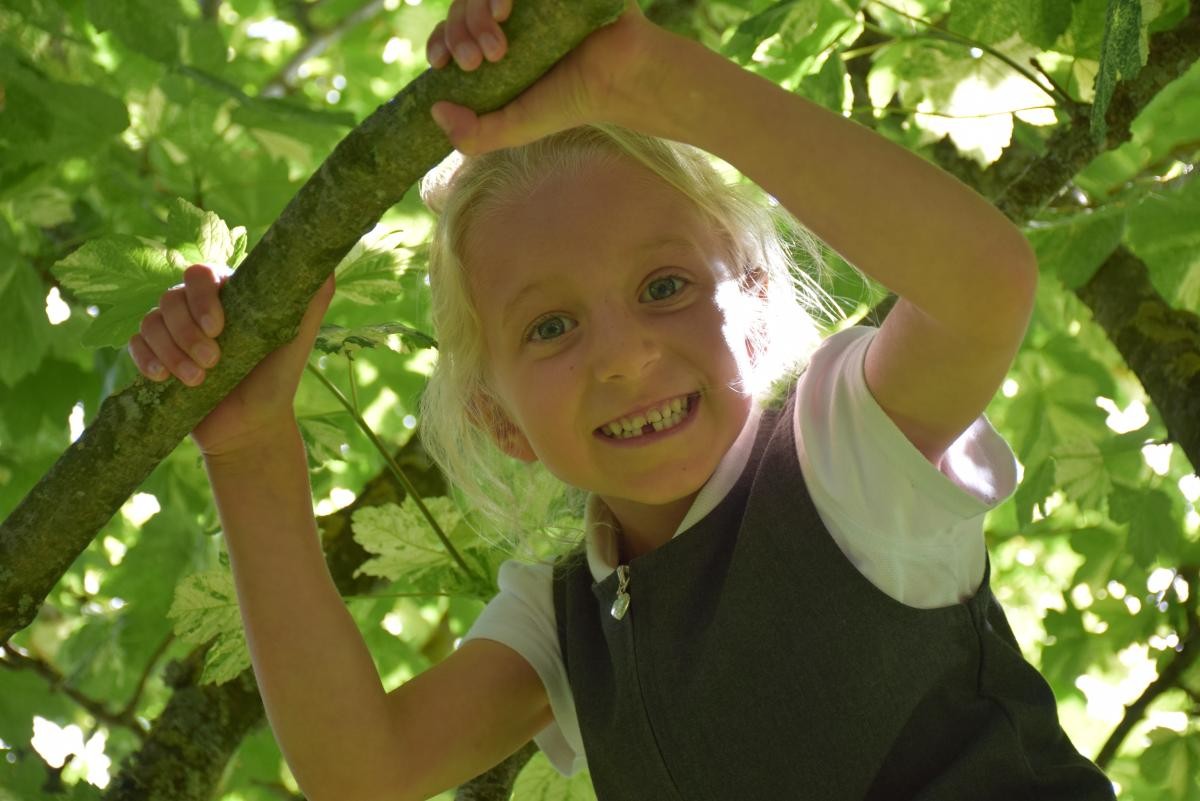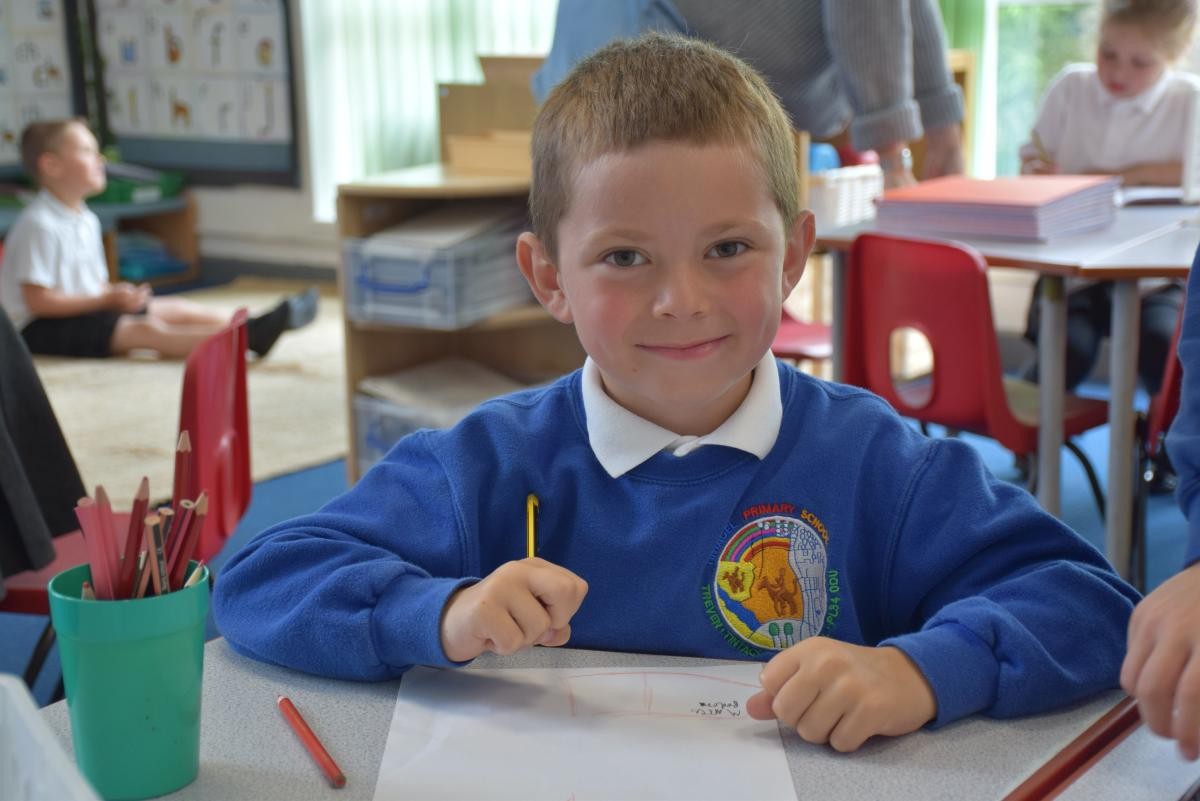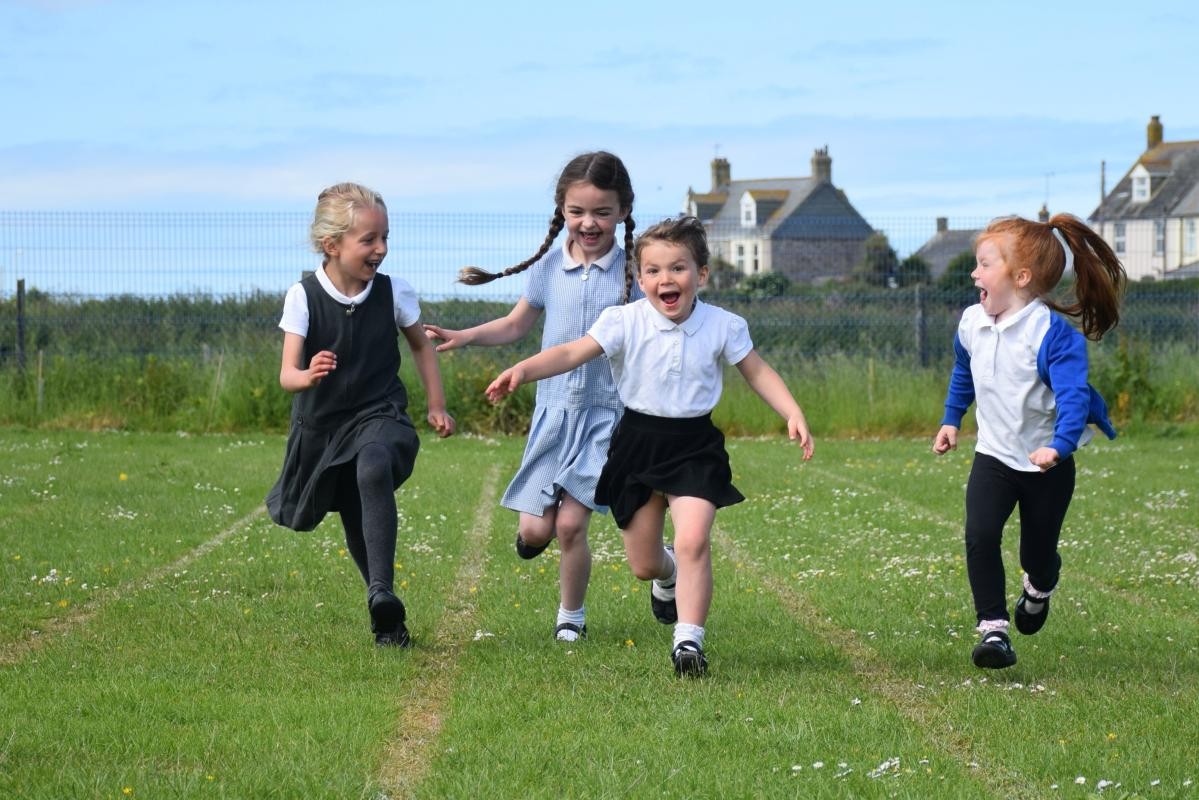Early Years Foundation Stage
At Tintagel Primary School we are firm believers that the Foundation Stage is a vital and exciting time for children. It quite literally builds their educational platform giving stability to all learning that follows. During this time, children develop quickly and we want to make sure they have the best start to their school life with us.
The Uniqueness of Every Child
Our staff believe that every child has the potential to be a competent learner who can grow to be resilient, capable, confident and self-assured. We recognise that children develop in individual ways and at varying rates. Children's attitudes and dispositions to learning are influenced by feedback from others so we use praise and encouragement, as well as celebration and rewards, to instil in our children a positive attitude to learning.
We aim to give our children every opportunity to achieve their personal best which means that our planning is adapted to meet the needs of all groups and abilities. We do this by taking account of our children's range of life experiences and the unique world view that they bring to us when they join our school family.
At the Foundation Stage we set realistic and challenging expectations keyed to the needs of our children, so that most achieve the Early Learning Goals by the end of the Foundation Stage. We do this through:
- Planning opportunities that build upon and extend children's knowledge, experience and interests, and develop their self-esteem and confidence;
- Using a wide range of teaching strategies based on children's learning needs;
- Providing a wide range of opportunities to motivate and support children and to help them learn effectively;
- Offering a safe and supportive learning environment in which the contribution of all children is valued;
- Employing resources which reflect diversity and are free from discrimination and stereotyping;
- Planning challenging activities to meet the needs of both boys and girls, of children with special educational needs, of children who are more-able, of children with disabilities, of children from all social and cultural backgrounds, of children from different ethnic groups, and of those from diverse linguistic backgrounds;
- Monitoring children's progress and taking action to provide additional specialist support as necessary - such as referrals to Speech and Language Therapy.
- Working closely with parents, carers and other outside agencies to ensure all children's needs are met so that they are able to access the curriculum and make strong progress.
Our Ethos
'Play is the highest form of research.' Albert Einstein
At Tintagel School we strive to create a learning environment that inspires, delights and intrigues, both inside and out. We know that by offering children a wide variety of experiences and opportunities, we could help develop future athletes, artists, authors or astronauts. If children feel confident to challenge themselves, try something new, discover a hidden talent or truly believe in themselves, it could make all the difference to their future. We plan activities and resources based on the children's current interests, developmental needs and areas of learning that need to be taught. When children are excited and completely engrossed in their learning they gain far more from it. We are far more concerned with the learning and processes that have taken place than the end product. We want children to leave us with a variety of skills and abilities to help them develop in a world full of unknowns. For this reason, it is critical that - alongside our parents - we work together to ensure every child's experience in the Early Years Foundation Stage is a preparation for life and not simply preparation for the next stage of education.
'
We are now at a point where we must educate our children in what no one knew yesterday, and prepare our schools for what no one knows yet.' Margret Mead
Our Curriculum
'Play is the work of childhood.'
Within the Early Years Foundation Stage we have a slightly different focus compared to the National Curriculum. We have a large focus on the Prime Areas of Learning. These are:
- Communication and Language
- Personal, Social and Emotional Development
- Physical Development
These are the fundamental skills that support any other learning. It is important that children have strong skills in these areas to help support them fully within the Specific Areas of Learning:
- Literacy
- Mathematics
- Understanding the World
- Expressive Art and Design
To track the children's development throughout the year and ensure they are making good progress we carry out numerous observations capturing their learning. In order to do this effectively we use an online system called ˜Tapestry'. This is a secure website that allows you to access your own child's journal at home once your account and passwords have been set up. This is a fabulous system as it allows you to see instantly what your child has been learning but also means that you can contribute evidence towards your child's journal at home. This is really important as you are their primary educators and may see developments and milestones we may not have captured yet in class. Furthermore, the children adore sharing their achievement back in the classroom and talking about their learning that you have uploaded. Celebrating these efforts with peers help to build confident, proud learners.



